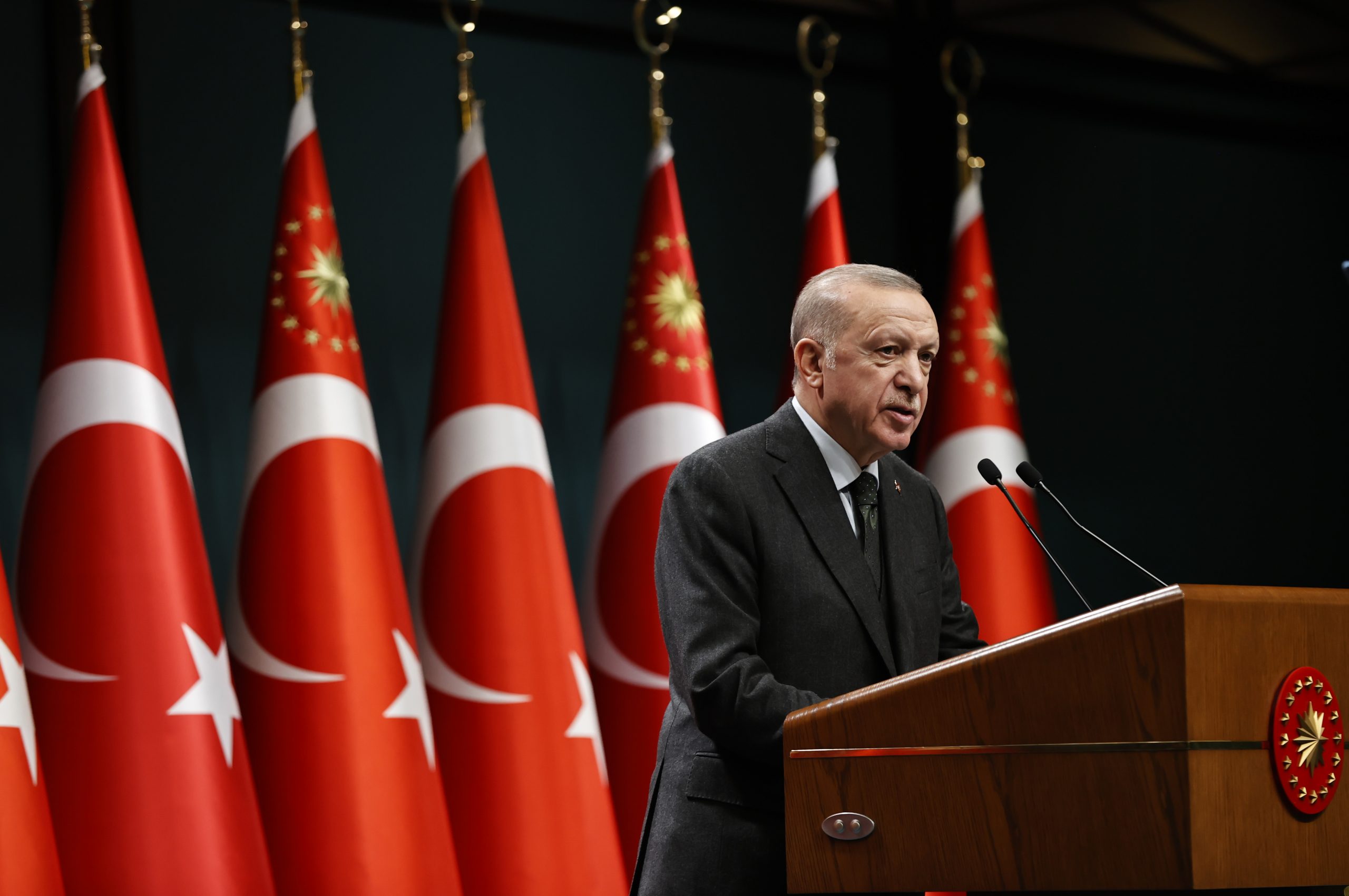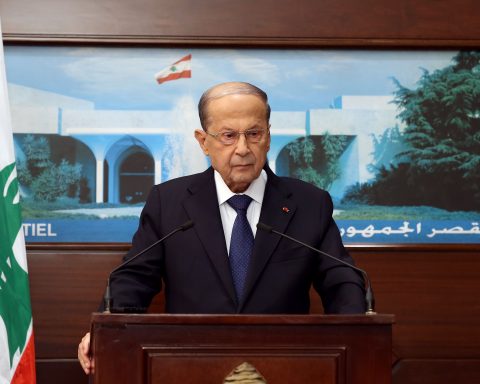The outbreak of the COVID-19 pandemic and the ensuing energy crisis in the European Union have prompted the bloc to take the issue of energy security seriously once again, focusing on renewable energy and energy efficiency policies. Europe’s energy security has always been important to Washington as an ally of the US, and the United States has supported the continent, both by exporting energy to the continent and by investing in member countries’ energy infrastructure, as well as by providing political and economic support for oil and gas projects. There have been recent developments in Israeli energy diplomacy, i.e., gas exports to Egypt, a water-electricity agreement with Jordan, the UAE’s $1 billion investment in Tamar field, an Egypt-Jordan trilateral agreement to supply gas and electricity to Lebanon, which has increased Jordan’s role, and Saudi Arabia is developing a network of energy-focused regional alliances in Iraq-Israel power supply.
With the discovery of gas in Israel’s Tamar and Leviathan regions and the Aphrodite field on the southern coast of the island of Cyprus in 2009, EU member states were enthusiastic about finding an alternative to Russian gas. In this context, the shortest and most economical route for the gas to be transported to Europe was the delivery of gas via Turkey, through a subsea pipeline via the island of Cyprus. Disputes between Greece, South Cyprus, Egypt, and Israel with Turkey prevented Ankara from being invited to the Eastern Mediterranean Gas Forum. After the signing of the contract for the construction of the eastern Mediterranean pipeline area, Turkey officially protested the signing of this contract. The contract for the construction of the Eastern Mediterranean pipeline was signed on January 2, 2020, in the presence of the leaders of Israel, Greece, and South Cyprus in Athens.
Due to geopolitical, political, ecological, and economic reasons, it would be rational for the EU to withdraw its support from the EastMed gas pipeline project. The final decision on the EastMed pipeline project was expected to be made in 2022. The European Commission views this project negatively due to its cost, limited reserves and priority policies given to green energy, as well as the fact that supporting a pipeline project in this category is against the EU’s program to combat global climate change. Even if the EU agrees to pay the high cost as a result of the pressure and blackmail of Greece and South Cyprus, the problems will not end because this policy also contradicts the transition to green energy in the EU, the fight against global climate change and the action plan.
The momentum of other export options, including the construction of an LNG export facility in South Cyprus, needs to be increased. While more gas is likely to be required to underline this pipeline, more gas scales could also lead to other development options or further complicate the task of aggregating different supplies. At present, gas is a vital geopolitical weapon that goes beyond its use in heating or cooling systems. In recent years, Washington has opposed Germany and other EU countries over a gas deal with Russia. Israel has also sought to use gas in geopolitical rivalries to discover more gas resources than domestic demand. Israel, which has faced a shortage of gas in the past, has decided to allocate about 40 percent of its gas to foreign exports in a way that also serves its political interests.
US no longer supports EastMed Pipeline
It was claimed that Washington conveyed its doubts to Athens due to the economic viability of the project and its reservations due to environmental factors. The US, which was not actually involved in the project, always had doubts about EastMed. Citing various sources, Reuters stated that the US informed Israel and Greece that it had given up the EastMed project because it did not want tensions with Turkey. Instead of EastMed, the Arab Gas Pipeline might be more realistic. The delivery of Egyptian and Israeli gas to Europe via Turkey was seriously calculated in the past, but this situation was interrupted by the Syrian civil war. It will be of great benefit by integrating it with other pipelines in Turkey, but it should be noted that this did not happen. It can be said that this project was reactivated together with the Lebanon crisis.
According to a number of Turkish experts, the main reason for the collapse is Turkey’s refusal to accept this project because it crossed its own continental shelf from the very beginning. Ankara sees the Eastern Mediterranean Gas Forum as a new tool to geopolitically trap and exclude Turkey from gas wealth in the Eastern Mediterranean. Moreover, the new project threatens Turkey’s strategy to become an important energy hub between the East and the West.
Israel-Turkey Gas Pipeline Project
In 2016, then-Israeli Energy Minister Yuval Steinitz announced Turkey’s intention to import Israeli natural gas from the Leviathan gas field, which was supposed to reach Turkey in 2020 with the necessary funding, but tensions between the two countries continued. And the change in regional relations in the energy dimension prevented this plan from being implemented. Relations between Ankara and Tel Aviv have been strained several times since 2016. This derives mainly from Russia’s solid establishment of pipeline connections in the market, which has been further strengthened with the recent Nord Stream 2 developments. Despite this, the EU will still pursue its interest in the East Med and some major regional projects that have been proposed, such as the EastMed pipeline, which connects regional resources to Greece through the island of Cyprus, and the Melita TransGas Pipeline between Malta and Italy. These projects can utilize EU funds until the end of 2027 as they are titled “projects of common interest” (PCI).
In order for this project to continue, the demand in Southeast Europe needs to increase, and there needs to be a lack of supplies in the region or the price of gas must be high for an opening to occur. The East Med pipeline could be popularized if the current outlets for East Med gas become worse. There needs to be a major player who can make buyers and sellers meet and can find a commercial solution for producers to gain revenue by creating competition and providing buyers with alternatives. Some experts who oppose Turkish policies in the Mediterranean have cited the construction of the Eastern Mediterranean Pipeline as an important factor in reducing Turkey’s presence and influence in the geopolitical equations of the Eastern Mediterranean.
All buyers and sellers need to be brought together by a leading company in the market. One primary motive will be the suppliers’ level of risk that they are ready to accept. Producers have been given a firm price guarantee in most of the gas sales agreements so far. It is not easy to do the same thing in Europe.
With the capacity to carry 9-12 billion cubic meters of natural gas per year, which is approximately 10 percent of Europe’s supply, the EastMed pipeline was established to be a pipeline with the greatest length and depth. So, it was expected to contribute to the decrease in the EU’s reliance on Russian gas. However, there were many complications as there were doubts from the perspective of its financial and technical aspects. Italy, where the pipeline was intended to lead to, was never officially a participant. Officials from Israel and Greece declared that they were evaluating plans to change the route of the EastMed pipeline by 2022 so that they could bypass the island of Cyprus and establish one via Egypt. On the other hand, an agreement between Egypt and Israel was also signed, and this agreement weakened the EastMed case.
Given the lack of funding for the Eastern Mediterranean pipeline project and the shift in the balance of power in the Israeli-Turkish pipeline region, it could be considered as an alternative to the pipeline, given Erdogan’s remarks about Turkey’s readiness to import and transfer Israeli gas to Europe. If the Turkish-Israeli pipeline agreement is signed during the Israeli president’s visit to Turkey, the balance of power in the region will shift in Turkey’s favor. It is natural that Cypriot cooperation is needed to implement the pipeline. Egyptian natural gas can also be transported to Europe via the Israeli pipeline to Turkey, providing part of the energy needed by Europe, reducing Europe’s dependence on Russian gas, and maintaining stability and security in the Eastern Mediterranean region. Changing security relations in the region and the energy crisis in Europe are a good opportunity for Turkey and Israel. The United States has always supported the improvement and enhancement of relations between Ankara and Tel Aviv, and it is natural that any agreement that improves and enhances relations between Ankara and Tel Aviv will be supported by Washington. It should not be forgotten that the transfer of Israeli natural gas to Europe, a traditional ally of the United States, will pave the way for a gradual reduction of Russia’s political influence in Europe and a reduction in Europe’s dependence on Russian energy resources.














